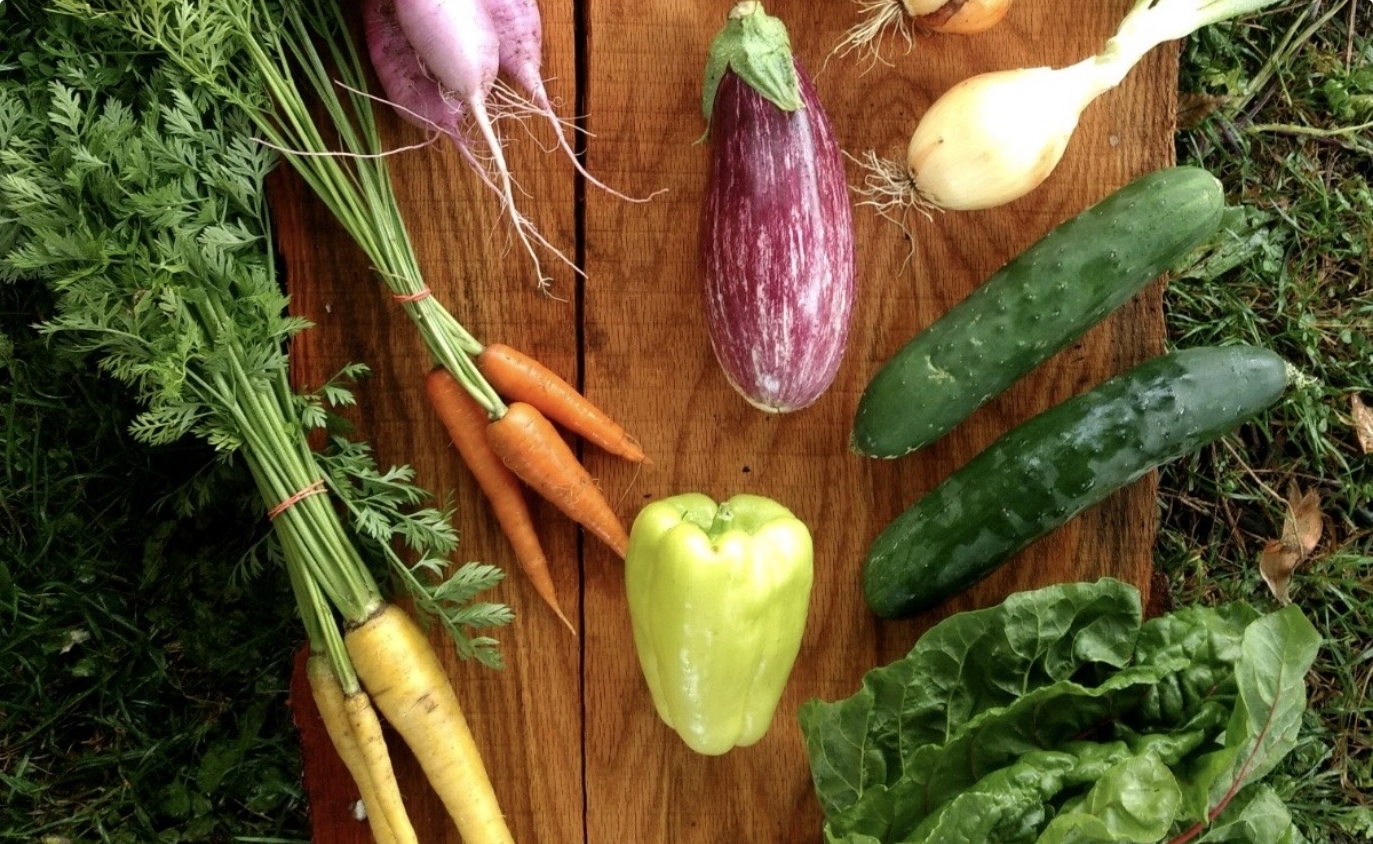Summer in Rhode Island is a time of picking and plucking in the gardens and fields. At The Farm, we tackle peak-growing season with a variety of strategies to manage and make the most of this bounty. Here’s how you, too, can efficiently handle the harvests that summer brings, especially following our organic, no-till farming practices.
Harvesting Tips for Peak Season
Timely Picking
- Frequent Harvesting: Summer crops like zucchini, beans, and cucumbers should be harvested frequently to encourage more production.
- Morning Harvests: Collect produce early in the day when it’s cool. This helps maintain the quality and extends the shelf life of your produce.
Handling Tender Produce
- Gentle Handling: Treat tender crops like tomatoes and berries with care to prevent bruising.
- Immediate Cooling: Some crops, such as leafy greens, benefit from immediate cooling after harvest to retain freshness.
Storage Solutions
Proper Preservation
- Cool, Dark, and Dry: Store root vegetables like carrots and beets in a cool, dark, and dry place.
- Refrigeration: Crops like leafy greens, broccoli, and cucumbers should be refrigerated.
- Canning and Freezing: Preserve surplus produce like tomatoes and berries through canning or freezing.
Creating a Root Cellar
- Building a Root Cellar: Consider building a root cellar for long-term storage of large harvests. This is particularly useful for keeping root crops fresh throughout the summer and into the fall.
Utilizing the Bounty
Fresh Eating
- Salads and Raw Snacks: Use fresh greens, tomatoes, and cucumbers for salads and healthy snacks.
- Grilling Vegetables: Summer squash, eggplants, and peppers are delicious when grilled.
Preserving for Later
- Pickling: Cucumbers, beans, and beets are excellent for pickling.
- Making Sauces and Jams: Create sauces from tomatoes and jams from berries for use throughout the year.
Sharing the Harvest
Community Engagement
- Donating to Food Banks: Share your surplus with local food banks or community centers.
- Organizing a Produce Swap: Host a neighborhood produce swap. This is a great way to diversify the types of produce you have while strengthening community bonds.
Selling Your Produce
- Farmers’ Markets: Consider selling your surplus at local farmers’ markets.
- CSA (Community Supported Agriculture): If you run a CSA, include diverse and abundant produce in your weekly shares.
Maintaining Soil Health
Maintaining Soil Health
Despite the heavy yield, it’s important to maintain soil health, especially in a no-till organic system.
Crop Rotation and Cover Crops
- Rotating Crops: Rotate your crops to prevent soil nutrient depletion and reduce pest and disease pressure.
- Planting Cover Crops: After harvesting, plant cover crops to enrich the soil and prevent erosion.
Summer’s bounty can be both exhilarating and overwhelming. By implementing these tips and strategies, you can efficiently manage the abundant harvest, reduce waste, and enjoy the fruits (and vegetables!) of your labor all year round.

